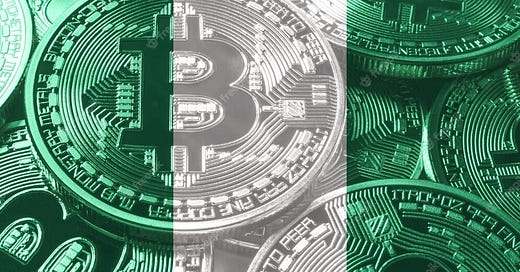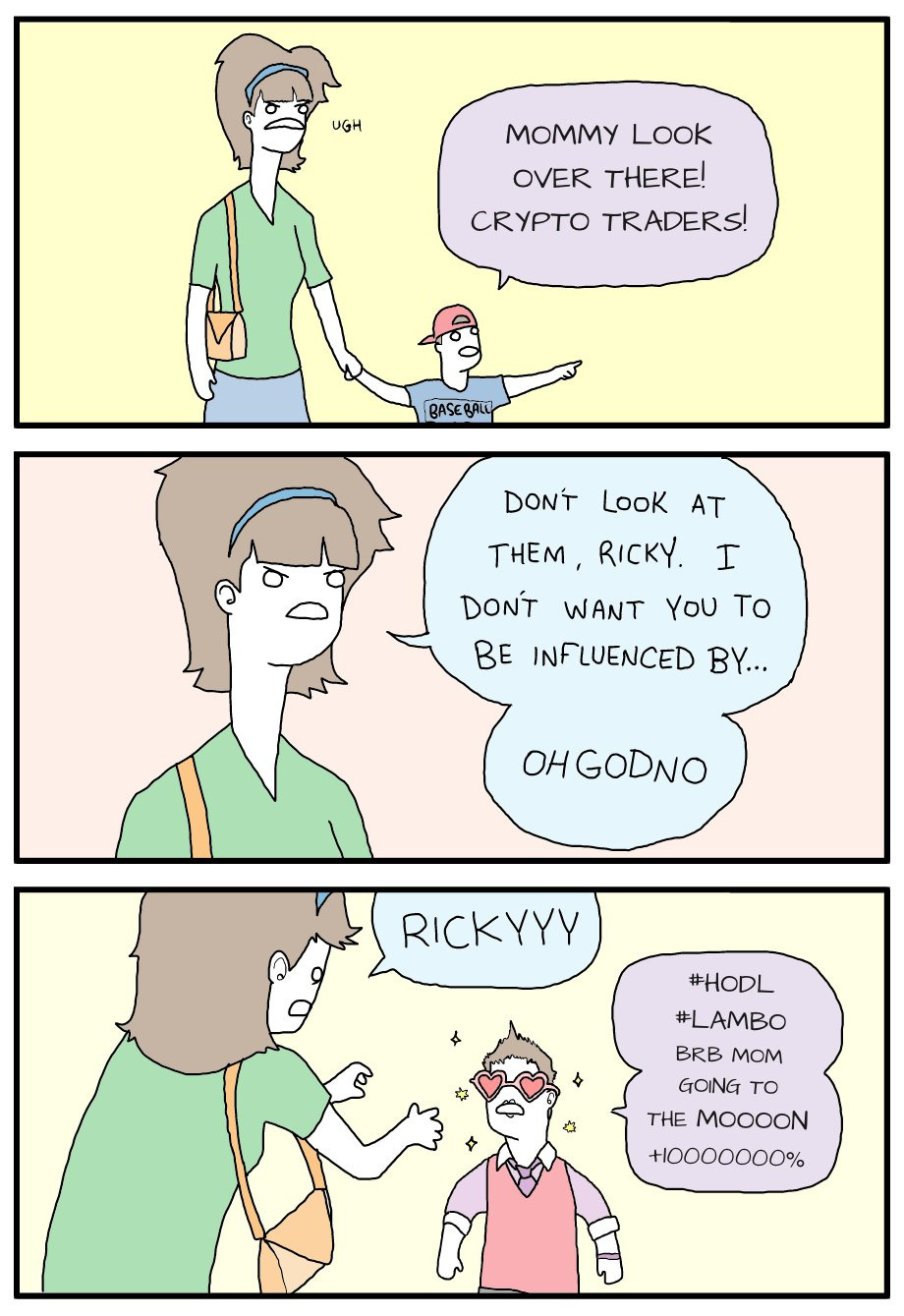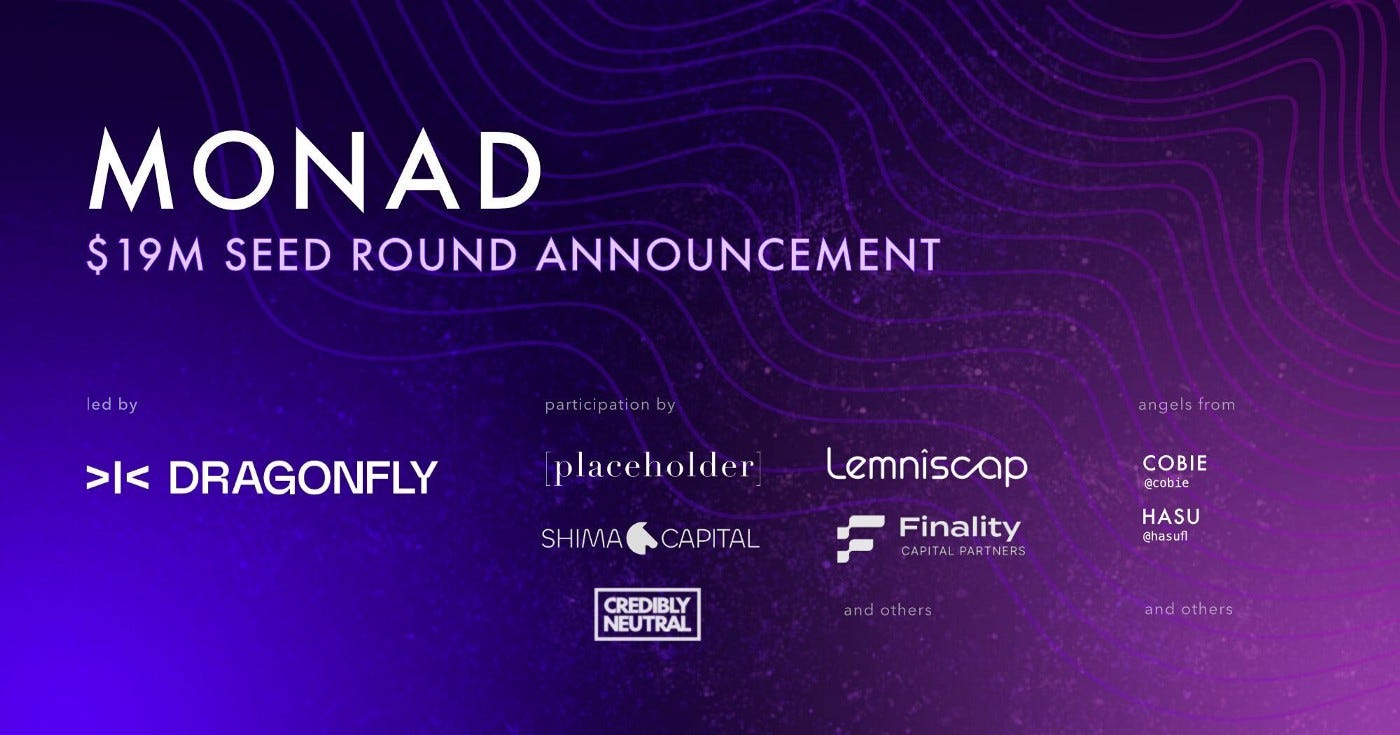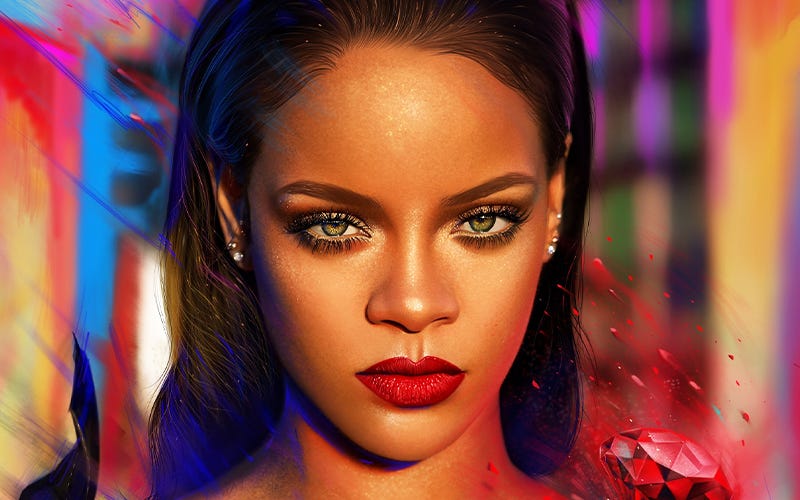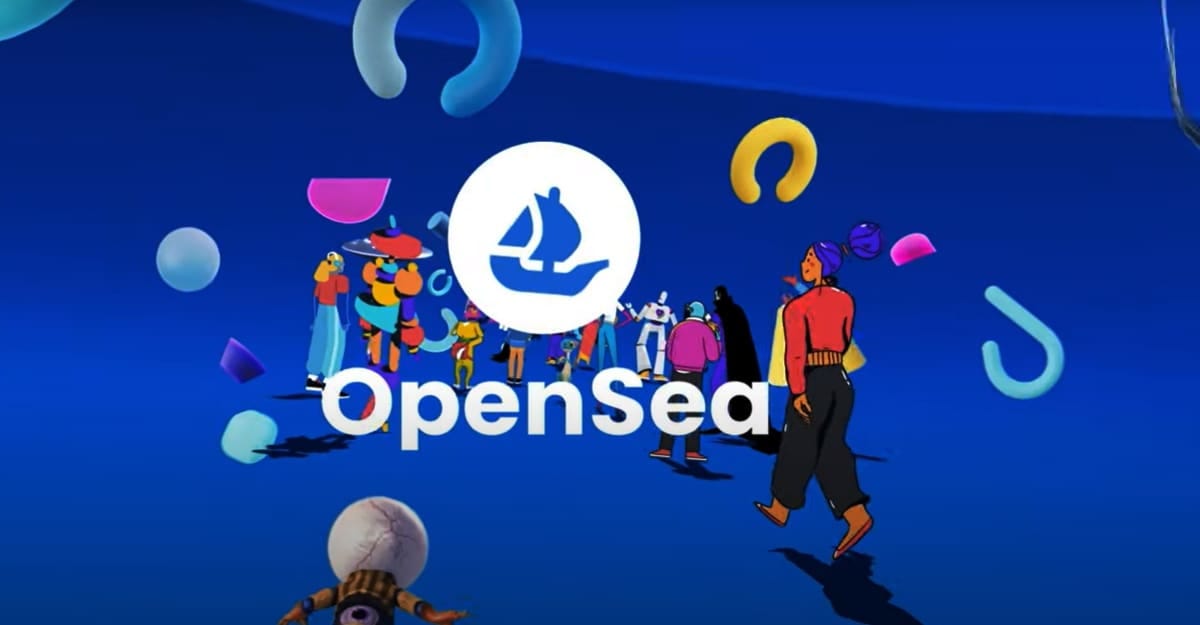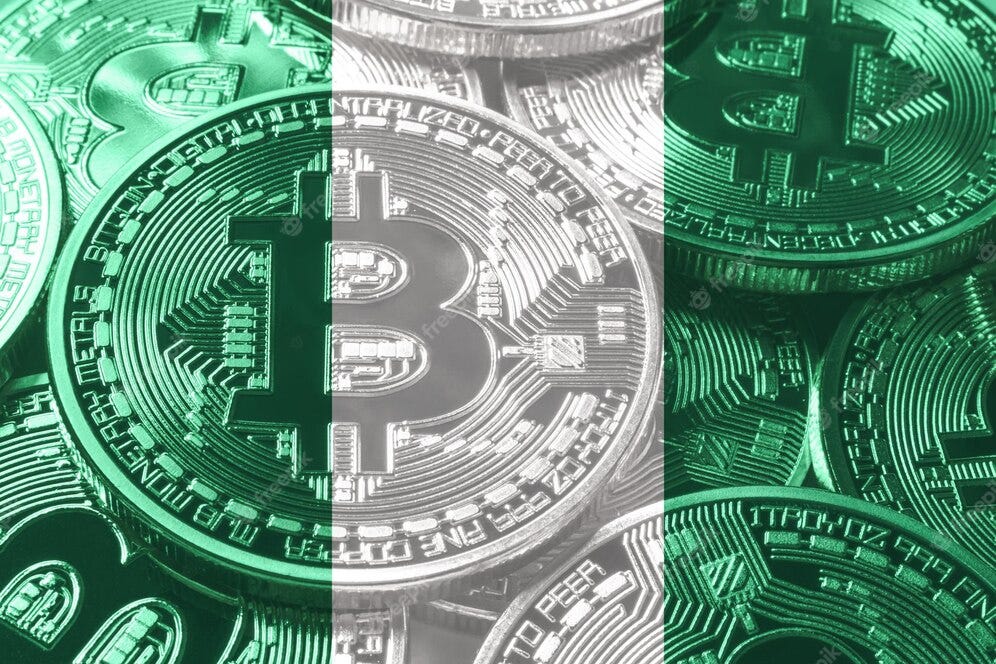ICYMI: Last Week in Crypto - French Art Museum display CryptoPunks, Opensea delist Rihanna NFTs, No Cash in Nigeria - Why not Bitcoin?
Give us this day, Our Bitcoin💰🤑
Love was in the air last week, especially for crypto users as survey reports show that 83% of respondents find an interest in crypto as an attraction factor when looking for a romantic partner. Opensea halted and delisted Rihanna’s NFTs, France art museum set to display Cryptopunks in its gallery and Nigeria’s cash scarcity saga ignites the need for Bitcoin adoption.
Valentine’s Day Survey: 83% Confess Attraction For Crypto Enthusiasts
According to a Valentine's Day survey by Binance, having an interest in cryptocurrencies may be a significant attraction factor.
A Valentine's Day survey by Binance found that expressing interest in cryptocurrencies may be the secret to finding a romantic partner.
In the weeks before the traditional Valentine's Day, the cryptocurrency exchange polled 2,600 people worldwide about the significance of potential partners interested in cryptocurrencies. If the data are to be believed, having a keen interest in the field could play a significant role in finding compatible partners.
One important discovery was that 83% of respondents thought it was attractive when a partner shared their interest in cryptocurrencies.
70% of respondents to the survey said they would be more interested in dating someone who shares their interest in cryptocurrencies.
According to 60% of respondents, having a cryptocurrency interest makes potential partners more alluring because it shows that the person is "tech-savvy" and receptive to new ideas and developments.
38% of those polled claimed that their partners shared their enthusiasm and interest in cryptocurrencies, while 27% admitted that they had introduced their partners to Web3, crypto, and blockchain.
With 83% of respondents saying they'd prefer to receive a crypto gift card on Valentine's Day, it also appears that receiving cryptocurrencies was preferable to receiving roses or chocolates as a gift.
Paris Hilton, an American socialite and serial entrepreneur, married cryptocurrency, blockchain, and Valentine's Day in 2023 while hosting a virtual reality dating show called “Paris Land” on The Sandbox.
Monad Labs raise $19M to develop smart contract platform, and improve the Ethereum ecosystem
The Monad blockchain's development team, Monad Labs, has exclusively disclosed to TechCrunch that it has raised $19 million in seed funding led by Dragonfly Capital.
“Monad is an effort to fundamentally optimize smart contract platforms,” Keone Hon, co-founder and CEO of Monad Labs, said to TechCrunch. “We’re ultimately building a platform to optimize both consensus and execution […] which ultimately results in a system that can process a billion transactions per day and 10,000 transactions per second.”
Hon, Eunice Giarta, and James Hunsaker co-founded the layer-1 smart contract platform in 2022 with the goal of increasing throughput on the Ethereum blockchain. It is compatible with the Ethereum Virtual Machine (EVM). The group's collective experience in developing low-latency, high-frequency trading (HFT) systems at Jump Trading exceeds seven years.
“Fundamentally, we’re building a platform, so our main clients expand across the board. In some ways you can think of us as pseudonymous with iOS and what the iPhone can provide,” Giarta said. “We’re allowing devs to build applications like the App Store.”
The platform is not yet publicly accessible, but it will start its testnet phase soon before launching its mainnet later this year, according to the statement.
There were 70 participants in the round, including angel investors like Naval Ravikant, the co-founder of AngelList, Placeholder Capital, Lemniscap, Shima Capital, and Finality Capital. We discovered that assembling a really large coalition of backers has greatly aided us in our endeavor, said Hon.
In the upcoming months, the team will be doubled to about 24, according to Giarta, using the capital.
“Ultimately the problem of limited throughput and high fees are acute challenges in the Ethereum ecosystem,” Hon said. “We found a number of leaders in the space who want to tackle the problem head-on with fundamental improvements to the overall system in order to build the most optimized system possible.”
People assume Ethereum can't be efficient in general and in the crypto space, Hunsaker said. But he added that Monad aims to concentrate on performance and address that issue.
“If you don’t have better performance, you can’t scale to everyday users,” Hunsaker said. “We’re thinking forward. Apps on blockchains so far have been simple, so to build more complex apps and add natural value they’re going to have to be more complex. We have features planned to expand what blockchain can do, but our primary focus right now is performance because without that, you don’t have anything that’s usable on a wide scale.”
Other high-performance blockchains have "abandoned the Ethereum space and existing chains that are EVM compatible didn't innovate, but primarily just used what was available to build out their blockchain," according to Hunsaker.
“So we’re re-building the EVM for high performance and trying to stay within the Ethereum ecosystem because we think that’s where most of the innovation has happened and will continue to happen.”
The team is concentrated on enhancing the Ethereum space, Hon said, despite the fact that the current market for cryptocurrencies and technology, in general, has been "challenging."
“Ultimately we want to grow a vibrant ecosystem of app developers and users. From our perspective, the future is bright.”
France’s ultra-modern art museum to display CryptoPunks, Autoglyphs NFTs
The Centre Pompidou, the foremost contemporary art museum in Paris, revealed on February 10 that a forthcoming permanent exhibition would focus on the relationship between art and the blockchain as represented by nonfungible tokens (NFTs).
The Centre Pompidou, which houses the first collection of modern art in Europe, will debut a new exhibition this spring that explores the relationship between blockchain technology and the arts.
The Centre will exhibit NFTs from more than 16 digital artists from around the world, including well-known collectibles like CryptoPunk #110 and Autoglyph #25, both of which were donated to the Centre Pompidou.
Director of the French National Museum of Modern Art, Xavier Rey, stated that the Centre Pompidou is "pursuing its interest in digital art, in connection with the blockchain." As stated by Rey:
“Web3 is an innovative territory that artists have now seized upon to create original and daring work, and this collection reaffirms our support for artists in their conquest of new means of expression, which is the foundation of modern art.“
This spring's exhibition will be NFT's first showing at the renowned Centre Pompidou, which is also home to works by Frida Kahlo, Henri Matisse, and Vassily Kandinsky.
We are honored to announce that Autoglyph #25 (donated by us), and Cryptopunk #110 (generously donated by our friends at @yugalabs) have been acquired by @CentrePompidou for their permanent collection. pic.twitter.com/q8URwLHbTR
— Larva Labs (@larvalabs) February 10, 2023
Yuga Labs, the company that developed NFT and has owned CryptoPunks' intellectual property (IP) since March 2022, claimed that the initiative is a component of a legacy project that donates Punks to eminent art institutions all over the world. The business has already given CryptoPunk #305 to Miami's Institute of Contemporary Art.
“Seeing CryptoPunk #110 displayed in the Centre Pompidou, arguably the world’s most prestigious contemporary art museum, is a great moment for the Web3 and NFT ecosystem, and we’re honored to help drive this cultural conversation,” - Yuga Labs co-founder Greg Solano.
OpenSea Halts Trading on Rihanna Music NFTs
NFT fans are outraged by OpenSea's decision to stop secondary sales of the NFT collection for Rihanna's song "Bitch Better Have My Money" as the internet is still reeling from her electrifying Super Bowl performance.
The Web3 music service AnotherBlock distributed 0.99% of the song's total royalties among 300 Ethereum NFTs last week. Jamil "Deputy" Pierre, one of the song's producers, contributed to the co-production of the Rihanna song in 2015 and donated a portion of his royalties to the blockchain. Who knows how much Rihanna herself is even aware of the collection?
The NFT collection quickly sold out last week, bringing in $63,000 in revenue and giving holders of these NFTs a portion of future streaming royalties from the master recording. But only two days later, on the eve of Rihanna's Super Bowl performance, AnotherBlock CEO Michel "bigmich" Traore announced in the project's Discord server that users were unable to trade NFTs on OpenSea, the platform with the highest volume of NFT trading.
The AnotherBlock team claimed last Sunday that OpenSea's automated system "flagged" the project's description and delisted it without informing the team. AnotherBlock added that it didn't know why the project had been marked.
AnotherBlock commented on the project's description in a Discord post, saying, "We have used the same or similar language before."
The collection's sales were suspended on the marketplace on Tuesday because OpenSea does not accept NFTs that "appear to be promising fractional ownership and future profit based on that ownership," according to Andreas "bigleton" Bigert, the head of community and growth at AnotherBlock.
Bigert alleged that AnotherBlock's efforts to fix the problem have been "ignored" by OpenSea.
“We have also brought up why similar collections (Royal.io and Corite for instance) are still tradable on their platform in our communication without getting any comment on that either,” Bigert said on Tuesday.
Electronic musician and entrepreneur Justin "3LAU" Blau founded the music rights NFT platform Royal.io, and another music platform called Corite also offers artists revenue sharing with fans and NFTs that give holders an allocation of the platform's native token.
Members were reminded in AnotherBlock's Discord server that the Rihanna NFTs could still be traded on that platform as well as on Blur, which on Tuesday finally released its long-awaited airdrop rewards to the delight of wash traders all over the NFT space.
Holders have since expressed worries about how OpenSea's limitations will impact the "floor" price of the collection, which is the cost to purchase a single NFT in a specific collection.
OpenSea Goes Zero-Fee with Optional Creator Royalties
Leading non-fungible token (NFT) marketplace OpenSea announced on Friday that it is temporarily eliminating its marketplace fee, escalating the competition with popular no-fee marketplace Blur for market share.
The renowned NFT marketplace changed its policies as a result of competition from the well-known zero-fee marketplace Blur.
In a tweet, OpenSea announced that it would waive all marketplace fees for "a limited time" and set all collections made without on-chain royalty enforcement to default to optional creator royalties starting at 0.5%.
We’re making some big changes today:
1) OpenSea fee → 0% for a limited time
2) Moving to optional creator earnings (0.5% min) for all collections without on-chain enforcement (old & new)
3) Marketplaces with the same policies will not be blocked by the operator filter - OpenSea announced in a tweet.
“This is the start of a new era for OpenSea,” the marketplace said on Twitter. “We’re excited to test this model and find the right balance of incentives and motivations for all ecosystem participants – creators, collectors, and power buyers and sellers.”
Sales on NFT marketplaces with the same policies are now permitted because the marketplace has modified its blocklist of other marketplaces that don't honor full royalty payments to creators.
Since Blur "make good on their promise," creators are no longer required to choose between the two platforms in order to receive full royalties on its collections, according to the statement.
Following the Tuesday launch of Blur's native token, this week's tension between Blur and OpenSea has grown. For the first time since Blur went live in October, OpenSea was surpassed by Blur on trading volume on Wednesday.
In the argument over creator royalties, OpenSea has adopted a strict stance. In November, the company introduced a tool for enforcing royalties that enable new collections to delegate royalties on-chain. Additionally, this tool prevents these collections from being resold on X2Y2 and Blur, two online markets that don't require the payment of royalties.
According to reports, Blur discovered a flaw in this tool in January that allowed collections that imposed royalties on OpenSea to maintain their percentages on Blur. In a blog post published on Wednesday and directed at NFT creators, Blur outlined the variations in royalty payment options between its platform and OpenSea. It also urged users to blocklist OpenSea so that creators could receive their full royalties on Blur's platform.
Nigerians launch Violent Protests Amid Cash Scarcity: A wake-up call for Bitcoin Adoption?
The Central Bank of Nigeria's (CBN) restrictions on cash withdrawals have made a compelling case for Bitcoin as a reliable store of value and a censorship-resistant currency.
Nigeria is currently experiencing a cash shortage as a result of the CBN redesigning its banknotes, rendering the previous naira bills useless. Citizens flocked to banks and ATMs to exchange their old bills for new ones as a result of the policy.
Since January 9, there has been a weekly cash withdrawal cap of 500,000 Naira ($1,087) for individuals and 5,000,000 Naira ($10,087) for organizations. Nigerians still struggle to obtain the new notes despite the restrictions because the majority of banks and ATMs do not have the cash to dispense.
According to a report by The Guardian, Point of Sale (POS) transactions and fees have increased dramatically, which has made matters worse. For every 10,000 Naira ($22) in cash withdrawn via POS, Nigerians are required to pay 2,000 to 3,000 naira ($4.3 to $6.5).
According to the CBN, the policy aims to transition Nigeria, which is still largely dependent on cash, to a digital-cash economy by encouraging the adoption of its CBDC, the e-Naira, and limiting the spread of counterfeit money in the nation.
The action, though, seems to have failed, leaving a large number of injured people and a small number of fatalities in its wake.
The lack of cash has caused business disruptions and sparked violent protests across the nation. The Guardian reports that irate protesters have taken to the streets, attacked bank branches and ATMs, and blocked access roads to the banks.
How Will Bitcoin Adoption Fix This In Nigeria?
Resistance to censorship is just one of Bitcoin's many appealing features. It cannot be controlled by any government because it is not connected to a centralized authority.
Nigerians will have 24/7 instant access to their money at low costs if Bitcoin is adopted there. The peer-to-peer and decentralized nature of the transactions makes it impossible to halt them.
Bitcoin also seeks to address the issue of inflation. Nigeria's inflation rates are on the rise and have increased by over 21% in the past month alone due to the devaluation of the naira. The ability of bitcoin to act as both a store of value and an inflation hedge may shield holders from the effects of rising inflation in Nigeria.
Given the current state of affairs in Nigeria, the benefits of holding bitcoin are becoming more obvious as demand for it rises to record levels. Nigeria's Bitcoin Premium recently increased by 60% to $38,000 per BTC.

